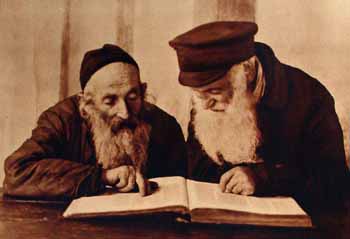
As a child, my rabbis and Judaic studies teachers cautioned me against straying “off the derekh,” which almost literally translates to off of the Orthodox straight-and-narrow. If we did, though, then the High Holidays were a time when we could return to once again being on the straight, singular path that Orthodoxy provided.
As a child, I bought into that idea. I davened with special intentionality, I sat through my rabbi’s sermons in synagogue (which I, as a child, rationalized as necessary for proper repentance), and I tried to struggle — as much as a child could — on evaluating myself and my actions over the past year.
Almost two years ago, I wrote my first piece for New Voices, which detailed some of my struggles leaving the Orthodox community in search of a Jewish community which aligned more closely with my values. If anything, the two years I’ve spent writing with New Voices so far have been a chronicle of my journey in finding conversation — and ultimately community — with non-Orthodox Jews as I entered college. As I cross the halfway point in my college career at the beginning of this school year, I’ve had the chance to reflect on the religious changes that I’ve gone through as the Jewish New Year approaches.
When I first arrived on campus in 2013, I saw myself as off the derekh. I wasn’t Orthodox, nor did I particularly want to be at that point. Within Orthodoxy, it’s very easy to distinguish between those who are in and those who are out, those who are right and those who are wrong. Indeed, the derekh is a uniquely Orthodox concept because of Orthodoxy’s rigid guidelines that outline all aspects of one’s life. Orthodoxy dictates not only the liturgy one uses to pray, but also the type of community in which one lives — Orthodox Jews, by necessity, need to live close together to form the communities that allow them to live their lives as Orthodox.
The idea of being on the derekh or off the derekh is one that has continued through my life and the changes in my religious practices. At any given point, I was either on it or off it — and I was usually the latter.
And then came the time when I was told that I, as a queer person, had no derekh, no road map, to follow in the first place — and because I as a queer person do not exist in substantive ways in Orthodox communal and ritual spaces, I realize this is completely true.
But I’ve come to realize that the entire conception of being on a specific derekh or being off that derekh is a term and view that stems from the privilege or having to never question your place in a community, to never have to think of that your religious beliefs might be radically different than your community’s or your family’s, and that you can envision yourself living the life that your parents had taught you to live.
Moreover, being off the derekh gave me the get-out-of-jail-free pass that I needed to claim that I was a “Bad Jew,” to justify the sacrifices that I had to make to find a Jewish community in which I am comfortable. But the term also brought with it guilt: even if I felt comfortable in my new Jewish surroundings outside of Orthodoxy, it felt wrong to be comfortable. Part of me felt comfortable in the fact that I was doing something radically different than that which I had grown up with, but the other part of me felt guilty for doing that which felt wrong because it felt unfamiliar.
Slowly, I began to rebuild my derekh, but the derekh had changed. It didn’t have the security that came with being on Orthodoxy’s straight and narrow, but I knew at the outset it might be impermanent. One day, I could leave this derekh, this road, and find another one.
Going “off the derekh” comes with guilt, with shame, and with the knowledge that I don’t fit into the Orthodox world of my childhood in the way that, growing up, I’d thought I always would. But the shame comes from the outside, from the world that told me that the way that I live my Jewish life is inherently less than Orthodoxy.
So, two years later, for the beginning of the new Jewish year and the second half of my college career, I resolve to reclaim the term “off the derekh.” Leaving Orthodoxy need not be a source of shame, of guilt, of fear — for me, or for others who make that decision for whatever reason they choose to leave the Orthodox world.
We formerly Orthodox Jews should not use it as a pass to leave behind commitment to the Jewish world entirely. Instead, it should be a source of pride: I — we — have found the power to leave the Orthodox world, to make the conscious decision to pursue the derekh that we find most compelling.
With that pride comes not a pass, but a challenge to forge a new path for ourselves in the Jewish community. It’s in that challenge, in that process, that we can begin to build a new vision for the Jewish community, to find a new space in which we can align our values, our theologies, and the immense tradition which we have been handed down. This New Year, I hope that we formerly Orthodox Jews can find not fear and shame in the process of building a new road, but pride and hope.
Amram Altzman is a student at List College.
